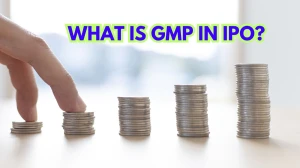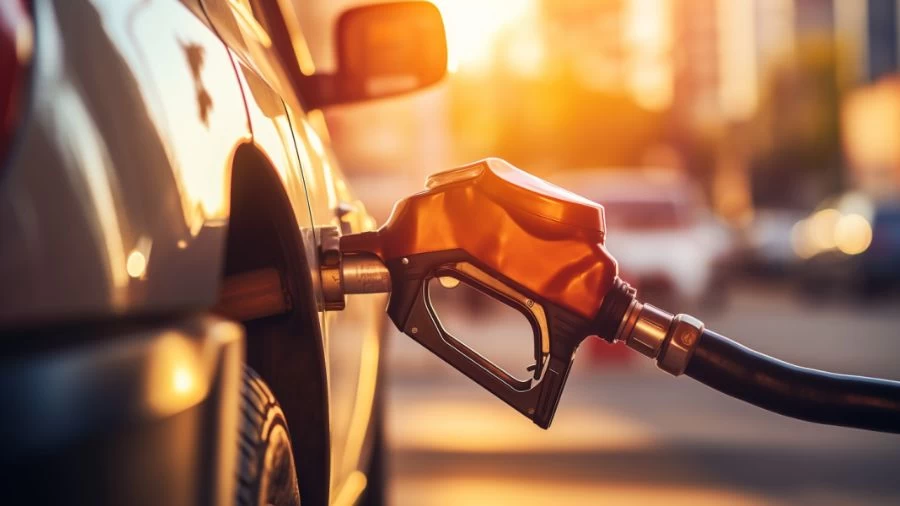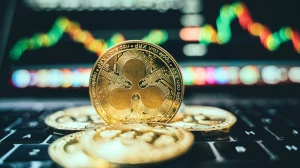
Why is Gas So Expensive Right Now? Why are Gas Prices Going Up?
Gas prices are soaring to a 10-month high in the United States due to factors like rising global oil demand, production cuts, refinery disruptions from extreme heat, hurricane season concerns, and changing consumer behavior nearing $4 per gallon.
Updated Dec 18, 2023
On This Page
Why is Gas So Expensive Right Now?
Gasoline prices in the United States have surged to the highest levels in a 10-month period, causing apprehension among both consumers and experts. Several factors have played a role in the recent upswing in gas prices, with potential repercussions for individual budgets and overall inflation rates. Here's an in-depth explanation of why gas is currently expensive:
Escalating Oil Prices
The predominant factor influencing gas prices is the cost of crude oil, constituting roughly half of the gasoline price. Since June, oil prices have been on a consistent upward trajectory due to factors like production cuts by major oil-producing nations such as Saudi Arabia and OPEC, coupled with heightened global demand for oil driven by robust summer air travel, increased oil usage for power generation, and heightened petrochemical activity in China.
Refining Challenges
Refining costs represent the second-largest component of gasoline prices. Refineries play a crucial role in converting crude oil into various petroleum products, including gasoline. However, extreme heatwaves across the United States have hindered refinery operations, with approximately 500,000 barrels per day of refining capacity estimated to be impacted during the summer months, according to AAA.
Hurricane Uncertainties
The onset of hurricane season has introduced a new level of unpredictability. While Hurricane Hilary was downgraded to a tropical storm upon hitting parts of southern California, Nevada, and Arizona, it underscored the industry's vulnerability to supply disruptions caused by severe weather events.
The NOAA's increased likelihood of an above-normal Atlantic hurricane season raises concerns about potential supply disruptions, especially in regions with a concentration of refineries.
Global Ramifications
Weather-related disruptions have a global impact. A hurricane hitting Gulf refineries could curtail the worldwide supply of gasoline, leading to price hikes not only in the United States but also globally.
Consumer Response
As gas prices approach the $4 per gallon mark, it becomes a tipping point for many Americans. A AAA survey in February 2022 revealed that 59% of respondents would make changes to their driving habits or lifestyle if gas prices reached this level, potentially impacting consumer spending and contributing to inflation concerns.
Regional Disparities
Gas prices exhibit significant variations by region. States like California, Washington, Hawaii, and Oregon currently have some of the highest gas prices in the nation, exceeding $5 per gallon. These regional differences are influenced by factors such as state taxes, supply chain logistics, and regional demand.
How Expensive is Gas?
As of September 28, 2023, the national average gas price stands at $3.89 per gallon, reflecting a slight decrease from the previous week's average of $3.90 as of September 14, 2023. The projected annual average gas price for 2023 is $3.59 per gallon.
In terms of regional variations, California recorded the highest average gas price in 2023 at $5.79 per gallon as of September 28, 2023, while Mississippi reported the lowest average gas price at $3.30 per gallon on the same date. These figures provide a comprehensive overview of gas prices, considering different geographical locations and specific timeframes.
Why is Gas So Expensive in Florida?
Gas prices in Florida have surged to a new high in 2023, reaching an average of $3.84 per gallon, driven by several factors. Extreme heat along the Gulf Coast has constrained oil refinery capacity, leading to supply shortages. Global oil prices, influenced by OPEC production cuts, have also contributed to the overall increase.
The southern U.S.'s high temperatures have adversely affected fuel refineries, causing equipment failures and breakdowns. As hurricane season peaks, Florida's gasoline supply, reliant on Gulf Coast refineries, remains vulnerable to disruptions, potentially causing further price spikes. Despite a recent 18-cent surge, some relief is observed as prices have started to slightly decrease.
Notably, West Palm Beach, Homosassa Springs, and Naples exhibit the highest prices, ranging from $3.90 to $3.96 per gallon, while Fort Walton Beach, Pensacola, and Panama City offer comparatively lower prices between $3.58 and $3.60 per gallon.
MarketsHost takes you on a journey through the multifaceted world of Economy, providing insights into business, technology, and travel.
Is Diesel More Expensive Than Gas?
Yes, diesel is typically more expensive than gasoline, and this can be attributed to several factors. A significant contributor is the higher tax rate imposed on diesel by the U.S. government, with diesel facing a tax of 24.3 cents per gallon compared to gasoline's 18.3 cents per gallon.
Additionally, there has been an increased demand for specific diesel components diverted for use in very low sulfur fuel oil (VLSFO), necessary to comply with stricter International Maritime Organization (IMO) regulations for ships. This shift in demand has led to a rise in diesel prices.
Furthermore, the conflict in Ukraine has played a role, as the U.S. imposed a ban on Russian oil and petroleum imports, impacting the global supply chain and further elevating diesel costs. Collectively, these factors contribute to diesel's higher price compared to gasoline.
What State Has the Highest Gas Prices?
California currently holds the unenviable position of having the highest gas prices among all U.S. states. The average cost of regular gas in California is $5.89 per gallon, making it notably pricier than the national average.
This figure represents an increase from the previous week when the average price was also $5.89. Over the past month, gas prices in California have experienced an upward trend, rising from $5.79. Consequently, drivers in California face significantly higher fuel expenses compared to their counterparts in other states across the country.
Which State Has the Lowest Gas Prices?
Mississippi proudly claims the title of having the lowest gas prices among all the United States. The average cost of regular gas in Mississippi stands at a reasonable $3.26 per gallon, a notable contrast to prices in other states.
This figure not only reflects the affordability of fuel for Mississippi residents but also represents a decrease in gas prices over both the previous week and the past month. Consequently, individuals in Mississippi enjoy some relief at the pump, experiencing lower gas prices compared to their counterparts in other states across the nation.
What Are the Ways to Save Money on Gas?
Seeking ways to trim your gas expenses? Utilize apps like GasBuddy to locate affordable gas, join rewards programs at major gas stations, and synchronize grocery store rewards for additional savings. Employing a cash-back credit card for gas purchases and planning fill-ups on Mondays can further enhance your cost-cutting strategies.
Download Gas Apps
Gas apps like GasBuddy, Waze, and Google Maps help you find cheap gas near you. They provide real-time gas prices and offer a convenient way to compare prices at different gas stations. Some apps even have rewards programs, such as GasBuddy, which can save you up to 25 cents per gallon.
Enroll in Gas Rewards Programs
Many gasoline retailers have rewards programs that allow you to earn points with each fill-up. These points can later be redeemed for discounts on gas purchases. Major gas station chains like Exxon, Shell, and Circle K offer such programs.
Stack Savings With Grocery Store Rewards
Some grocery store chains offer rewards programs that provide discounts on gas. For example, Kroger offers one fuel point for every $1 spent in their supermarkets, which can be redeemed at their gas stations or other affiliated chains. Choosing where to redeem these points strategically can maximize your savings.
Buy Gas with a Rewards Credit Card
If you pay off your credit card balance in full each month, consider using a cash-back credit card for gas purchases. Some credit cards offer high cash-back percentages for specific spending categories, including gas. Make sure to pay your balance in full to avoid interest charges.
Fill up Your Tank on Mondays
Gas prices can vary by the day of the week. A survey by GasBuddy found that gas tends to be the cheapest on Mondays in most states. Conversely, Wednesday, Thursday, and Saturday often have higher gas prices. Planning your fill-ups for Mondays can help you save
Why is Gas So Expensive Right Now-FAQs
1. Why are gas prices rising so quickly?
The difficulty arises from the soaring ambient temperatures, particularly reaching the 100-degree mark, which hinders their ability to operate at peak levels.
2. What role does crude oil play in the high gas prices?
Crude oil is a significant factor in determining gasoline prices. As the primary component of gasoline, any increase in crude oil prices directly impacts the cost of producing and refining gasoline, leading to higher prices at the pump.
3. How do international events affect gas prices in the USA?
International events, such as geopolitical tensions, conflicts, and supply chain disruptions, can have a significant impact on global oil markets.
4. Are taxes contributing to the high gas prices?
Taxes play a role in the cost of gasoline. Federal and state taxes are added to the base price of gasoline, making up a substantial portion of the total cost.
5. Will gas prices continue to rise, and when can we expect relief?
Gas prices are subject to ongoing market dynamics, and it's challenging to predict their future trajectory accurately. They may continue to rise if global oil demand remains strong and supply remains constrained. However, the exact timing and extent of any relief are uncertain.




